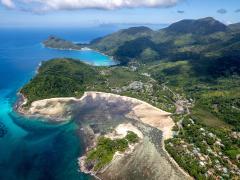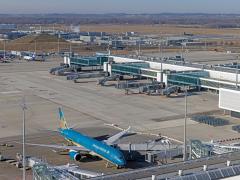Extreme weather is becoming a key factor in holiday planning. In a recent Travel News poll, 63% of travel agents said that South African travellers are sensitive to extreme weather when choosing their international travel destinations.
Record-breaking heatwaves in Europe have resulted in temperatures soaring above 40C, with heat and wildfire warnings issued across Greece, Turkey, France, Italy, Portugal and Spain over the past summer holiday.
“This year’s European summer has exposed the harsh new climate reality,” said Sue Garrett, GM Supply, Pricing & Marketing at Flight Centre South Africa. “The temperatures are impacting comfort, safety, accessibility, and long-term sustainability.”
However, Gert Kriel from Africa Prism, offering risk management services, believes that South Africans should not be affected by the heat. “They would be more worried about flooding or storms, especially if they are not in an English-speaking country and cannot access emergency services by phone,” said Kriel.
He states that weather influences travel decisions just as much as cost, safety, and convenience and that extreme weather conditions can have major impacts on all three. “If you have an unplanned delay due to weather, you pay what you have to for a place to stay, this specific place may be at budget prices so not in the best location and you may become a crime target. Convenience goes out the window the moment you are forced to change all your plans, then you simply try and pay as little as possible and survive until you can get back on schedule,” said Kriel.
Travellers adapt
Extreme weather changes travel arrangements, with Kriel stating that rather than avoiding destinations with extreme weather, travellers are more likely to adapt their travel plans.
A Flight Centre global survey showed that 72% of South Africans intended to travel outside of peak season in 2025, choosing either off-season (49%) and shoulder season (23%) travel to save money, avoid crowds, and escape the extreme temperatures.
Peak European summer (June to August) has been the go-to for South African travellers but, according to Flight Centre travellers are considering new destinations, such as Scandinavia, Slovenia, Switzerland, Austria, Scotland, Albania, Montenegro, and Bulgaria.
“When a destination like Greece starts introducing ‘climate crisis taxes’, and major landmarks close their doors at midday, it’s a clear sign the game has changed. You don’t have to give up those bucket list dreams – you just have to flip the script. While Europe isn’t off-limits, South Africans need to travel with new awareness – about heat, timing, and backup options,” said Garrett.
Extreme weather to continue
According to Flight Centre’s report, scientists have confirmed that the heatwaves are now 10 times more likely due to human-caused climate change. Europe is reportedly the fastest-warming continent in the world, warming at roughly twice the global average rate since the 1980s.
“We will see more weather-related disruptions to global travel patterns and some of these will last longer than before. The emergency capacity of countries will typically be lowered as time goes by, especially in outlying areas. This could negatively impact the whole travel wellness ecosystem,” said Kriel.













